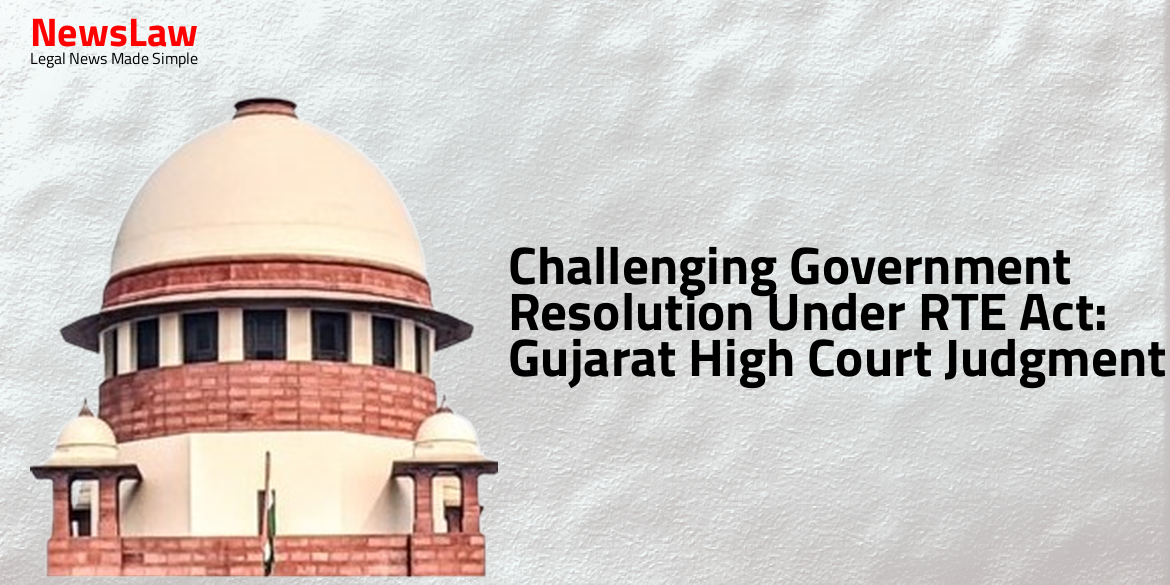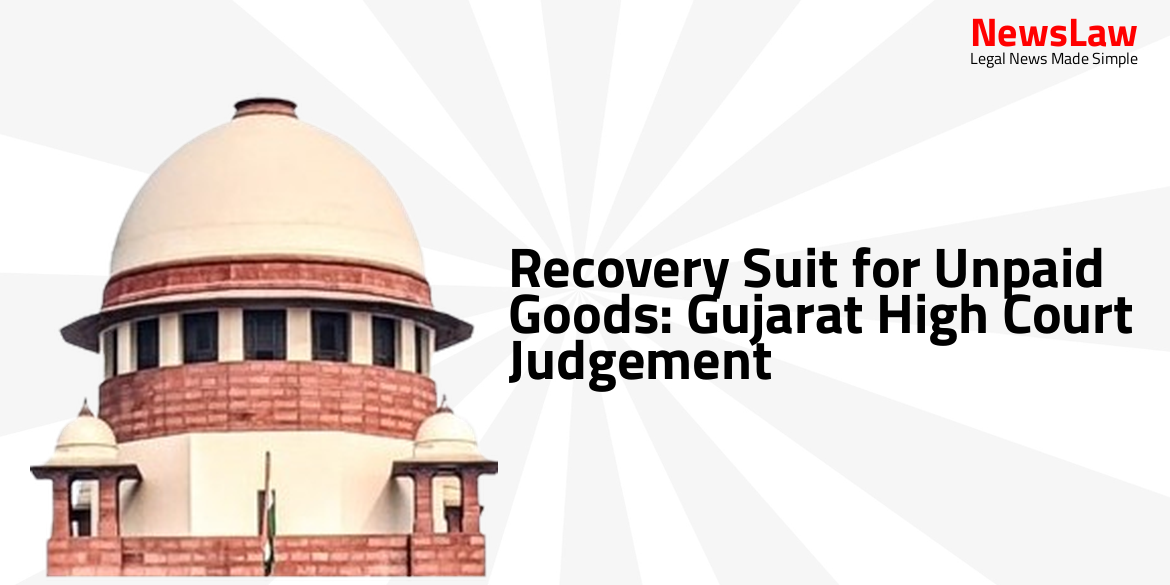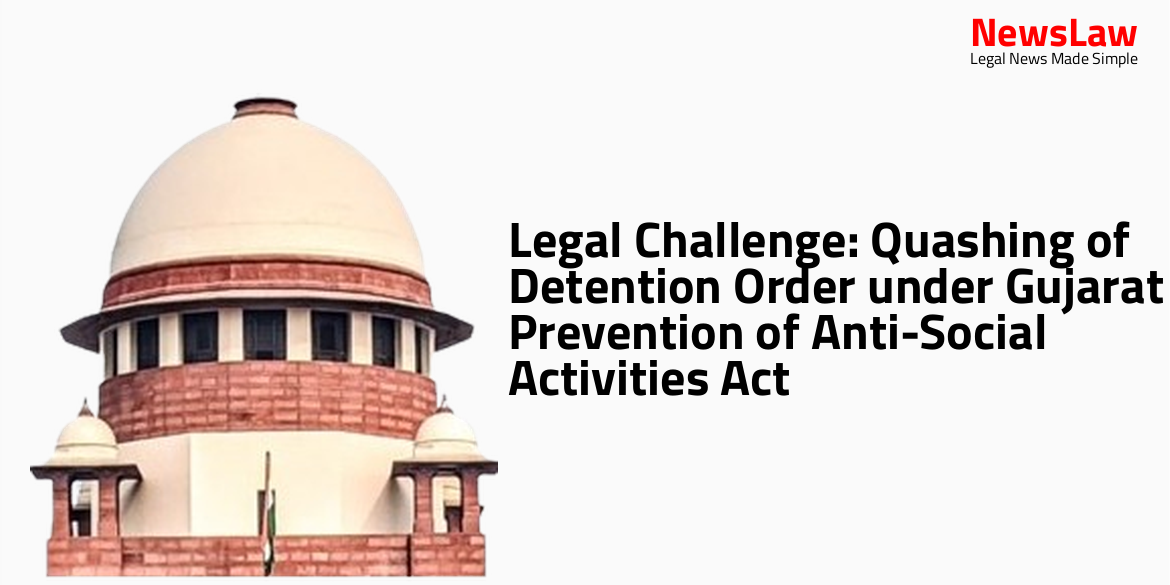The recent judgment by the Gujarat High Court on the challenge to the Government Resolution under the RTE Act has significant implications for education and social justice in the state. The petitioner, a businessman and social worker, raised concerns about the computation of 25% RTE seats, highlighting potential issues in the admission process for disadvantaged groups. Find out more about the court’s decision and its impact on the future of education in Gujarat.
Arguments
- The PIL filed by the petitioner, who claims to be a businessman and social worker, to challenge the Government Resolution dated 4.8.2020 regarding the RTE Act, 2009 standards is misconceived.
- The petitioner argues that Clause-3 of the Government Resolution contradicts Section 12(c) of the RTE Act, 2009 as it computes 25% based on the total strength of students in Standard-1 admitted in the last academic year.
- Due to an increase in the minimum age for admission to Standard-1, there is a significant gap in the number of students admitted in previous years compared to the current academic year.
- The petitioner claims that this gap will adversely affect the admission of poor children in the State for the academic session 2024-2025.
- In the last year, out of 82,853 seats in 9,873 private schools, only 52,395 students were admitted under the RTE Act, 2009 in 25% quota, indicating a shortage of seats for eligible students in the State of Gujarat.
Analysis
- 44% of total RTE seats decreased last year.
- Criteria for calculation of 25% RTE seats based on total number of students admitted in previous academic session is not arbitrary.
- There is no definitive data available for students to be admitted in current academic year.
- Petitioner came to the court directly without informing competent authority.
- 25% deduction based on maximum strength of 40 students per class, actual number to be considered if less than 40.
- Computation of 25% in compliance with Section 12(c) of RTE Act, 2009.
- Number 40 as maximum class strength not fixed for 25% RTE admission calculation.
- Nothing on record demonstrates prejudice to children from weaker sections of society.
- Purpose of the petition seems to preempt the admission process in schools in Gujarat.
- The writ petition lacks substance.
Decision
- Petitioner is granted liberty to conduct research and collect data to address potential admission issues for weaker sections and disadvantaged groups in neighborhood schools.
- Petitioner can take necessary action if there is a risk of denying admission to a significant number of eligible children.
- Petitioner may file a representation before the relevant authority in the interim.
- The petition is dismissed in accordance with the above actions.
Case Title: MOHAMAD IMRAN SHAIKH Vs. STATE OF GUJARAT
Case Number: R/WPPIL/25/2024



